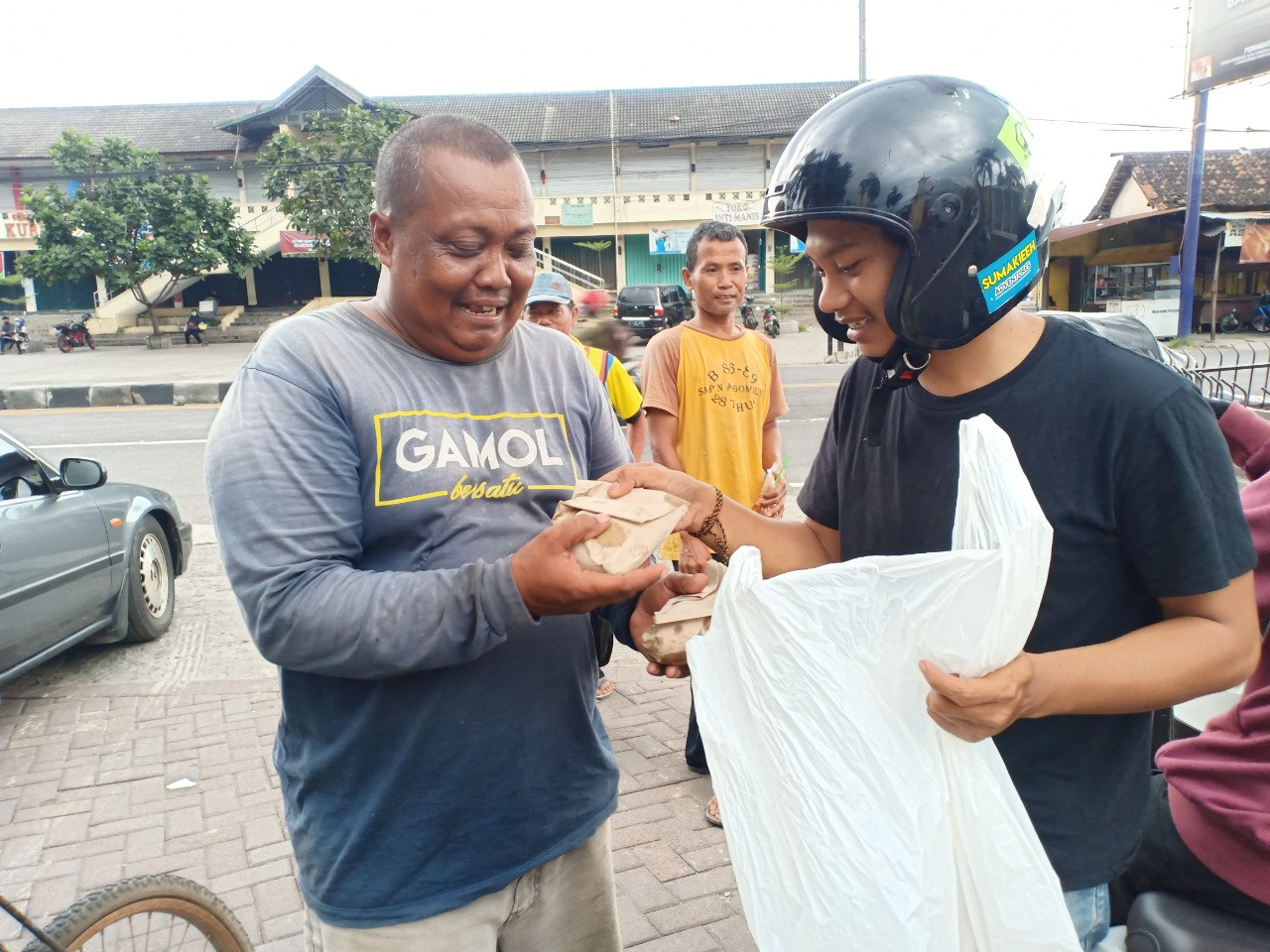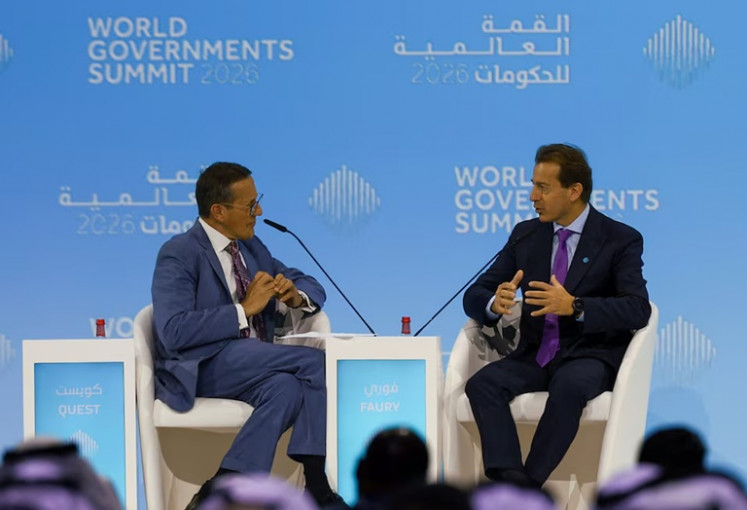Popular Reads
Top Results
Can't find what you're looking for?
View all search resultsPopular Reads
Top Results
Can't find what you're looking for?
View all search resultsSolidarity, unity emerging in pandemic
With no sign of the pandemic abating, different countries are figuring out their coping mechanisms. My hope lies in the evidently strong community solidarity. As the writer Yuval Noah Harari said recently in The Financial Times, “A self-motivated and well-informed population is usually far more powerful and effective than a policed, ignorant population.”
Change text size
Gift Premium Articles
to Anyone
I
was stunned upon learning that the largest online marketplace in Indonesia, Tokopedia, has banned thousands of its sellers who had tagged unreasonable prices on medical kits needed to fight COVID-19. This model of business is widely famous for its long-tail economy, which means they offer a variety of products rarely found in conventional retail stores.
In these desperate times Tokopedia could actually reap huge benefits from traffic data and charging service fees to thousands of sellers offering medical supplies on its platforms amid high demand and fear of the COVID-19 coronavirus. Surprisingly, Tokopedia was brave enough to cut down its comparative advantage in this long-tail economy.
Earlier, the ride-hailing decacorn companies had already fastened their seatbelts in preparing their ecosystems to deal with the outbreak. Gojek and Grab have prepared their fleets to support the supply of necessary items like food and the transportation of medical workers.
All sectors are badly hit and were certainly unprepared for this pandemic. The startups of today’s fairly new business models also face sudden disruption themselves. However, the examples of Gojek and Grab show companies can try to sustain themselves while swinging their swords to fight this common invisible enemy, the virus. The example of Tokopedia shows it can even choose to cut its lucrative tail even though they make the much-sought healthcare items more easily available from its competition.
Amid this pandemic, we can obviously see that businesses can also adjust their interests to serve long-term public benefits. This level of solidarity is not only shown in business but also in the political sphere.
In a rare show of unison, Nadhlatul Ulama and Muhammadiyah, Indonesia’s two biggest Islamic organizations, which often even have differing schedules for the Idul Fitri post-fasting celebrations, could even agree with Felix Siauw over cautionary measures for mass prayers during the pandemic.
Even more praiseworthy is the show of solidarity among ordinary people, as in earlier crises. Crowdfunding and public support attempt to fill the gap where government response is inadequate or not ready. Members of the Indonesian diaspora have been raising funds for limited medical equipment and shipping them to Indonesia. Here in Sweden where I am studying all my Chinese friends have received hundreds of masks shipped from their home country to prevent the outbreak.
Meanwhile, physicians are providing free online consultations through social media to answer all sorts of questions from the public. Groups of scholars and data-driven professionals provide online information regarding the virus outbreak. All differences are fading into the background; in the meantime, at least it’s just us versus them – the virus and reckless people who can afford to stay home but insist on needlessly venturing outside and endangering those around them and even their own families.
Social media has once again proved its importance in bringing alternative information and actions of solidarity. Restrictions and surveillance over it must be loosened for the health of our democracy; even as police charge those suspected of spreading hoaxes, particularly regarding COVID-19.
Amid exasperation over perceived foot-dragging on the part of the central government, initiatives of local governments were encouraging. Jakarta Governor Anies Baswedan was the first to limit public transportation in a bid for physical distancing, although he had to backtrack on restricting the MRT and Transjakarta schedules. Surabaya Mayor Tri Rismaharini requested local universities create the disinfectant chamber. These few examples show that for all its flaws, decentralization still works well in encouraging more progressive policies on the national level.
With no sign of the pandemic abating, different countries are figuring out their coping mechanisms. My hope lies in the evidently strong community solidarity. As the writer Yuval Noah Harari said recently in The Financial Times, “A self-motivated and well-informed population is usually far more powerful and effective than a policed, ignorant population.”
Harari reminds us that the choices and actions taken during this crisis will define the world we will be living in after the pandemic; this definitely applies to Indonesia as well.











